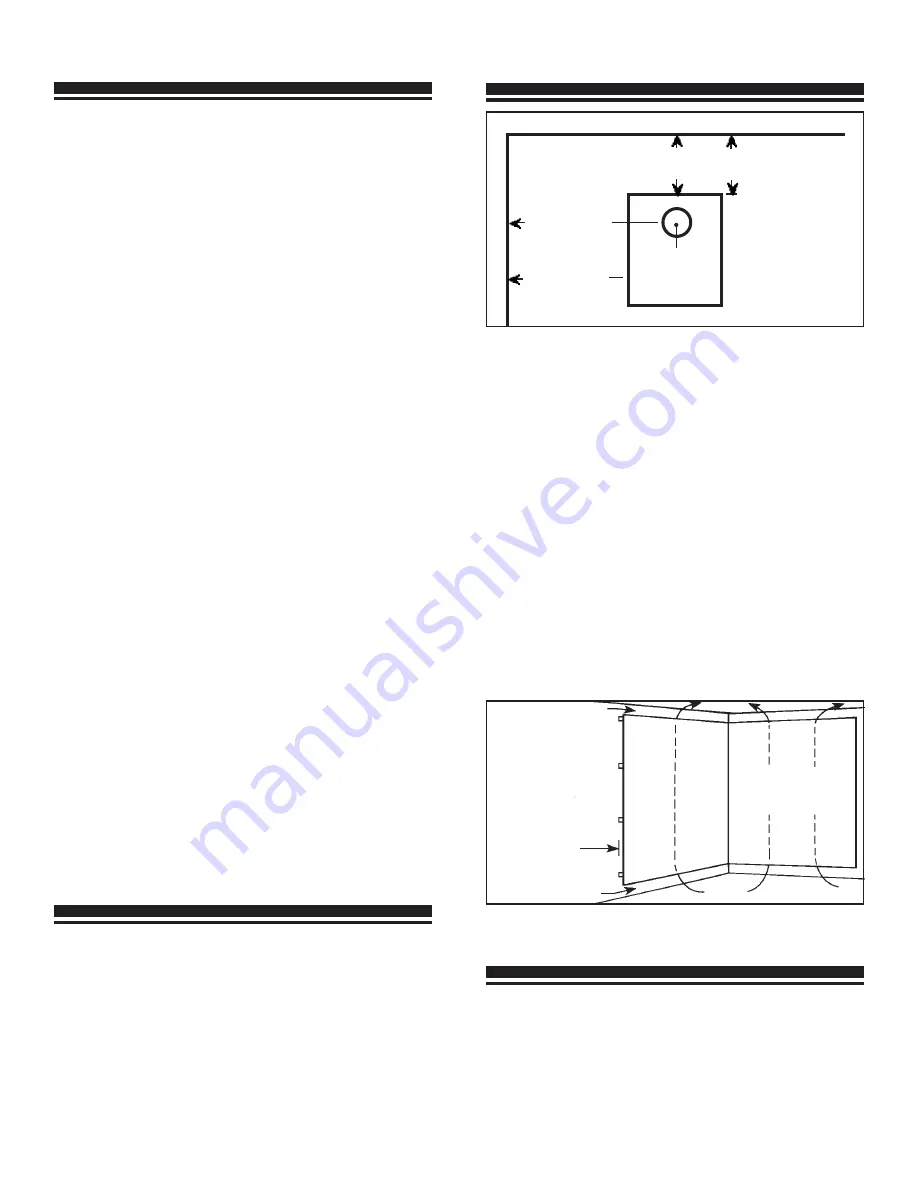
INTRODUCTION
Thank you for your purchase of a U.S. Stove Woodburning
furnace. Your decision to buy a Hotblast Furnace was
undoubtedly reached after much careful thought and consid-
eration. We are very proud you chose the U.S. Stove furnace
and trust you
will receive the comfort and economy that
others realize when heating with a U.S. Stove product.
Your dealer is important in your experience with the Furnace
not only in your purchase, but in his recommendations
for professional installation in your home. The qualified
professional installer (as recommended by your dealer) has
been expertly trained in solid-fuel furnace installation to
assure the safety and comfort for your family while saving you
money. Trust your experienced installer. He is a specialist in
his field.
IMPORTANT
Before installing and using your Hotblast Furnace, please
read the following pages thoroughly and carefully. If you
follow the instructions, your Hotblast furnace will give you safe
and more
dependable service in the years to come.
✑
First step; check your local codes. This installation must
comply with their rulings.
✒
Do not install this furnace in a mobile home
or trailer.
✓
Always have a smoke or ionization detector installed in
your home.
4 To prevent injury or damage, do not allow anyone who is
unfamiliar with the furnace to operate it.
✕
Spend some time with your furnace to become well
acquainted with different settings and how each will
affect its burning patterns. It is impossible to state just
how each setting will affect your furnace because of
the variations in each installation.
DISCLAIMER NOTICE
The BTU ranges and heating capacity specifications are
provided as a guide only and in no way guarantee the output
or capacity of the units. The actual BTU output depends on the
type of fuel being burned and its conditions, the thermostat
setting, the draft adjustment and the chimney that the unit is
hooked up to. The actual area that the unit will heat depends
on factors such as the conditions of the building, heat loss,
type of construction, amount of insulation, type of air move-
ment, and the location of the unit.
LOCATING YOUR FURNACE
The furnace is to be installed maintaining clearances as
shown in illustration.
Do not place the furnace directly on a combustible floor.
If you're placing it on a combustible floor, an approved fire
retardant material equivalent to 3/8" asbestos millboard
should be placed under the furnace. The material must extend
at least 16" in front of and 8" on either side of the fuel-loading
and
ash-removal doors, and underneath the
chimney connector and extending at least 2" on either side of
the chimney connector.
CLEARANCES
REDUCED CLEARANCES
NFPA guidelines and most codes permit reduced clearances
to combustible walls and ceilings if adequate protection is
added. A common mistake is to assume that sheet metal,
masonry, or asbestos board placed directly against a wall
protects it. Materials installed in this manner give very little
protection. These materials are good heat conductors, so they
will be almost as hot on their back side as they are on the
exposed side. Therefore, the combustible wall behind is still a
fire hazard.
A wall can be kept cool using these items but only if they're
mounted and spaced out from the wall by an inch or two to
allow free circulation of room air behind the protective panel.
The protective panel should start within a few inches of floor
level.
The three rules to follow when constructing wall protectors:
1. Non-combustibility of all materials including mounting
or supporting.
2. A well ventilated air space between protector or wall.
3. Sufficient strength and rigidity so that the protector and
air space will be durable.
CHIMNEY REQUIREMENTS
A masonry or Class A All-Fuel Metal Insulated Chimney must
be used in all airtight wood furnace installations. The mini-
mum recommended flue size for the U.S. Stove Hotblast
Furnace is 6" (inside diameter) for round flues, and 7" x 7" for
square flues. When making new chimney installations,
CAUTION: Do not
store combustible or
flammable material
near furnace.
MINIMUM
CLEARANCE TO
FLAMMABLE WALLS
(TOP VIEW)
FLAMMABLE WALL
FLUE
MODEL
1600 - 12"
1800 - 8"
MODEL
1600 - 22"
1800 - 19"
CONSTRUCTING
NON-FLAMMABLE
WALLS
PROTECTIVE COVERING
AND ALL SUPPORTS MUST
BE NON-COMBUSTIBLE.
‰
‰
1" AIR SPACE
2" FROM FLOOR
2" FROM CEILING
1
MODEL 1600 - 20"
MODEL 1800 - 25"
MODEL 1600 - 15"
MODEL 1800 - 18"
Summary of Contents for Clayton 1600
Page 30: ...N o t e s ...
Page 31: ...N o t e s ...



































